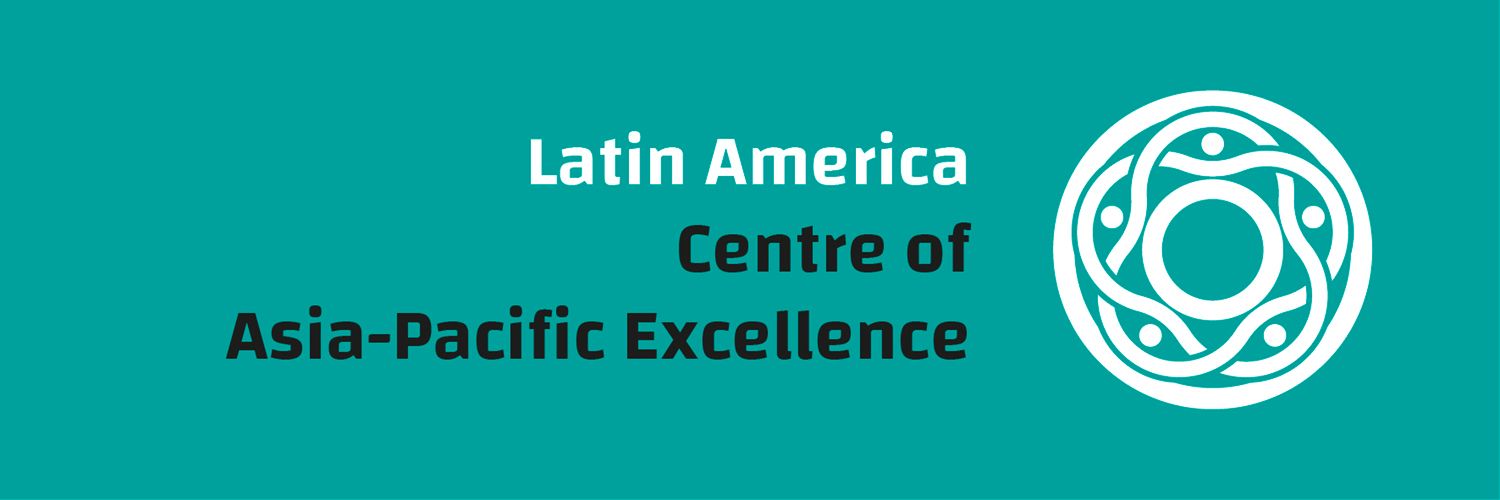Mexico: New Zealand's Base for North American Growth?
Mexico is New Zealand’s largest trading partner in Latin America and business links between the two markets are strengthening. Mexico offers New Zealand businesses options to grow their business and manage risks in evolving trade conditions.


Why should New Zealand businesses consider making Mexico part of their export and supply chain strategies? Access to new markets and global manufacturing expertise are but two of many reasons, according to trade experts and business leaders involved in a webinar held by the Latin America Centre of Asia-Pacific Excellence (CAPE).
The Latin America CAPE organised the webinar in association with the Latin America New Zealand Business Council, as part of a trade environment series examining underexplored Latin American opportunities.
This report captures several of the webinar’s key points:
• Mexico offers New Zealand businesses a stable platform into the United States. It can help businesses grow their markets and manage risks in evolving trade conditions.
• Mexico’s position as a pathway into North American markets remains assured in the face of threats to open trade and supply chains. Mexico is integral to North American value chains and new trade agreements are boosting certainty.
• New Zealand businesses have thrived in Mexico even during Covid-related disruptions. Mexico’s advantages include a professional workforce, good business conditions, and world-class expertise in multiple industry hubs. Strong networks exist to help businesses explore opportunities in Mexico, for example through NZTE, MFAT, and the Latin America CAPE.
• Globalisation is changing and trade progress will require building ‘social licence'. Good relationships and responsibility towards communities and the environment are important to achieving sustainable success in Latin America.
Watch the full webinar (1hr 35min)
You can watch the full webinar (1hr 35min) or read the short report below.
The Latin America CAPE extends its deep appreciation to the Webinar speakers:
- HE Mr Alfredo Rogerio Pérez Bravo, Mexico’s Ambassador to New Zealand
- HE Sara Meymand, New Zealand’s Ambassador to Mexico
- Hon. Tim Groser – former New Zealand Trade Minister and Ambassador to the United States of America
- Kellie Meiman – Managing Partner, McLarty Associates
- Dr Gerardo Traslosheros – UDLAP Jenkins Graduate School and PECC-Mexico Executive Director, former Mexico Ambassador to New Zealand
- Marcus Driller – Vice-President Corporate, Fisher & Paykel Healthcare
- Greg Balla – CEO, Wellington Drive Technologies
- Steve Jones – NZTE Regional Director for Latin America
- Professor Warwick Murray - Victoria University of Wellington
- Stephanie Honey – NZ International Business Forum, CAPEs Advisory Board
Webinar Report
Mexico in the context of New Zealand’s trade recovery strategies
Opening the webinar from Mexico, Her Excellency Sara Meymand, New Zealand’s Ambassador to Mexico spoke of Mexico’s relevance to the Government’s efforts to build resilience, diversity and agility into New Zealand’s trading profile.
“Mexico is New Zealand’s largest trading partner in Latin America, and trade between our countries has been growing since we became free-trade partners under the CPTPP in 2018. Underpinned by that agreement, business links are going from strength to strength and these closer trade links also increase the opportunities for incorporating Mexico into New Zealand supply chains.” — New Zealand Ambassador to Mexico Sara Meymand
The North America trade environment: An assured future out of disruption
Mexico’s position as a trade hub was considered in the context of an evolving trade environment, by the Honourable Tim Groser, Kellie Meiman, and Dr Gerardo Traslosheros.
For New Zealand businesses, a key point was that global trade had begun to evolve pre-pandemic. As the ‘lean’ supply chain model stretched to its limits, exporters began to understand the potential for disruption and the need to reform supply chain models.
“Before the pandemic caused chaos in supply chains around the world, the nature of the global business model and therefore supply chains was undergoing very important changes, some of them very promising for New Zealand, suffering traditionally as it had been from the tyranny of distance.” — Hon. Tim Groser
The newly minted USCMA was a bright spark amidst the global disruptions, as it secured Mexico’s trade pathways into US markets. Groser, Meiman and Dr Traslosheros observed that the USCMA emerged with overwhelming political and business support following challenges by the Trump Administration. That debate awakened US leaders to Mexico’s critical position in US manufacturing and supply chains, and the role of trade agreements in securing these chains. This leaves Mexico as a stable base from which to enter the US market, noted Groser. Meiman observed that such support could positively indicate US interest in trade agreements involving New Zealand, such as the CPTPP.
Dr Traslosheros reported that Mexico is working hard to adapt to rigorous trade rules, maintain the strength of its supply chain, and develop its position as a near-shoring hub.
“Mexico is a solid economy which enjoys sound fiscal and monetary policies and has the advantages of having an array of international trade and investment agreements, a working democracy, a solid judiciary and a stable exchange rate.” — Dr Gerardo Traslosheros
Trade and social issues: the importance of communities, relationships and perceptions
While Mexico provides a strong entry point into North America, New Zealand businesses will need to remain attuned to the political and trade dynamics between the US and Mexico, which affect issues such as labour relations, environmental regulation and dispute resolution.
Central to this is the Biden administration’s focus on rebuilding social license for open trade policies, especially with regard to labour rights and environmental protections, noted Meiman. In this respect, Meiman was encouraged that the USCMA illustrated the possibility of protecting labour while enabling certainty and growth.
While the opportunities are clear and trade conditions appear to be heading in a more just and ‘green’ direction, New Zealand businesses will need to consider the broader social factors of engaging in emerging markets, advised Professor Warwick Murray. The context of inequality and related migration issues across Latin America raised important issues of perception, Murray reflected. New Zealand investors may hesitate to take part in a system which on the surface may appear to exploit parts of society and the environment.
The speakers agreed that businesses operating in Mexico should take environmental and social issues seriously. Not only for the sustainability of their business, but to also contribute to the ‘social license’ required to progress open trade and a more just and sustainable supply chain model.
Mexico’s advantages for New Zealand businesses
The promise of Mexico as a manufacturing base appeared to be translating into action for New Zealand businesses. 2021 saw an increase in businesses approaching NZTE for advice about manufacturing in Mexico, reported Steve Jones. The reasons for this, suggested Jones, were better and more certain tariffs and labour costs than other markets and mitigation of supply chain disruptions.
Mexico compares well to other markets in various areas, said Jones. Advantages include a good intellectual property regime, manufacturing sectors geared towards the US market, and strong logistics infrastructure and transport networks between Mexico and the US. Many global brands incorporated Mexican manufactured goods into their supply chain.
How should New Zealand companies start thinking about beginning operations in Mexico? Jones noted that much depends on a company’s circumstances and strategies. NZTE is working hard to connect New Zealand companies with advisors to help them understand these choices, as well as information about business advantages in the top manufacturing states, and advice about integrating Mexican manufactured goods into US supply chains.
Mexico Case Studies: Fisher & Paykel Healthcare and Wellington Drive Technologies
Marcus Driller, Vice-President Corporate of Fisher & Paykel Healthcare, and Greg Balla, CEO of Wellington Drive Technologies, described how Mexico helped their companies navigate pandemic disruptions and gave them access to manufacturing and market expertise.
Fisher & Paykel Healthcare
Mexico played a key role in Fisher & Paykel Healthcare’s ability to ramp up supply of medical equipment for the global pandemic response. Fisher & Paykel was in Mexico thanks to a prescient decision made a decade earlier, when the company decided to diversify its manufacturing base in case of disruption to its Auckland operations. Tijuana became the final choice for several reasons, including its position as a medical device manufacturing hub, proximity to the US, low and stable manufacturing costs, and a largely bilingual workforce.
“We've found doing business in this part of the world very seamless and the environment has been very supportive. There are three ‘p’s which summarize why Fisher & Paykel Healthcare has really had a great experience in Mexico. That's been people, proximity to our large markets and in the professionalism of our people.” — Marcus Driller
New Zealand businesses should not underestimate Mexico’s level of expertise and professionalism, according to Driller. Mexican partners helped Fisher & Paykel improve its operations in both Mexico and New Zealand.
Wellington Drive Technologies
Wellington Drive Technologies supplies electronic and ‘Internet of Things’ solutions to the refrigeration industry, with teams in a dozen countries and supply chain partners in Vietnam and China. The firm established a distribution centre north of Mexico City in 2010. Since then a small team of 15 in Mexico has grown its contribution to 30 percent of the company’s revenue.
Having people on the ground in Mexico had been vital for Wellington Drive Technologies to deliver local support to its customers, especially during the Covid disruptions.
“We have found that relationships are key and having local people who understand relationships and how to work within their environment has been vital. That's really helped us by having capable people who are passionate about what they do in the region.” — Greg Balla
Having a distribution venue in Mexico not only helped the company smooth out supply chain disruptions, said Balla, but also ensured products were available in-market to support business development pilots.
Conclusions
"A lot of this has been a love letter to Mexico. It's not a well-known market in New Zealand but it's been vividly illustrated that it is somewhere that all New Zealand businesses should be taking a serious look at" - Stephanie Honey, summing up the webinar
His Excellency Mr Alfredo Rogerio Pérez Bravo, Mexico’s Ambassador to New Zealand agreed that the webinar was valuable in highlighting Mexico's opportunities for New Zealand businesses and concluded by observing that North America remains the world’s largest regional market and plays a powerful role in areas such as the development of new technologies and diversifying production. The Ambassador noted that the USCMA provides all-important certainty. Also important was having a reliable local partner. He invited businesses to contact the Mexican Embassy in New Zealand as a first door to knock on for support and questions.
Explore further
The United States-Mexico-Canada Agreement
The United States-Mexico-Canada Agreement (USMCA, known as T-MEC in Mexico) is a renegotiated replacement of the North American Free Trade Agreement (NAFTA), including significant new provisions about intellectual property, digital trade, environment, labour, and the dairy and automotive industries.

The views expressed in this article and the webinar do not represent the views of the Centres of Asia-Pacific Excellence.




